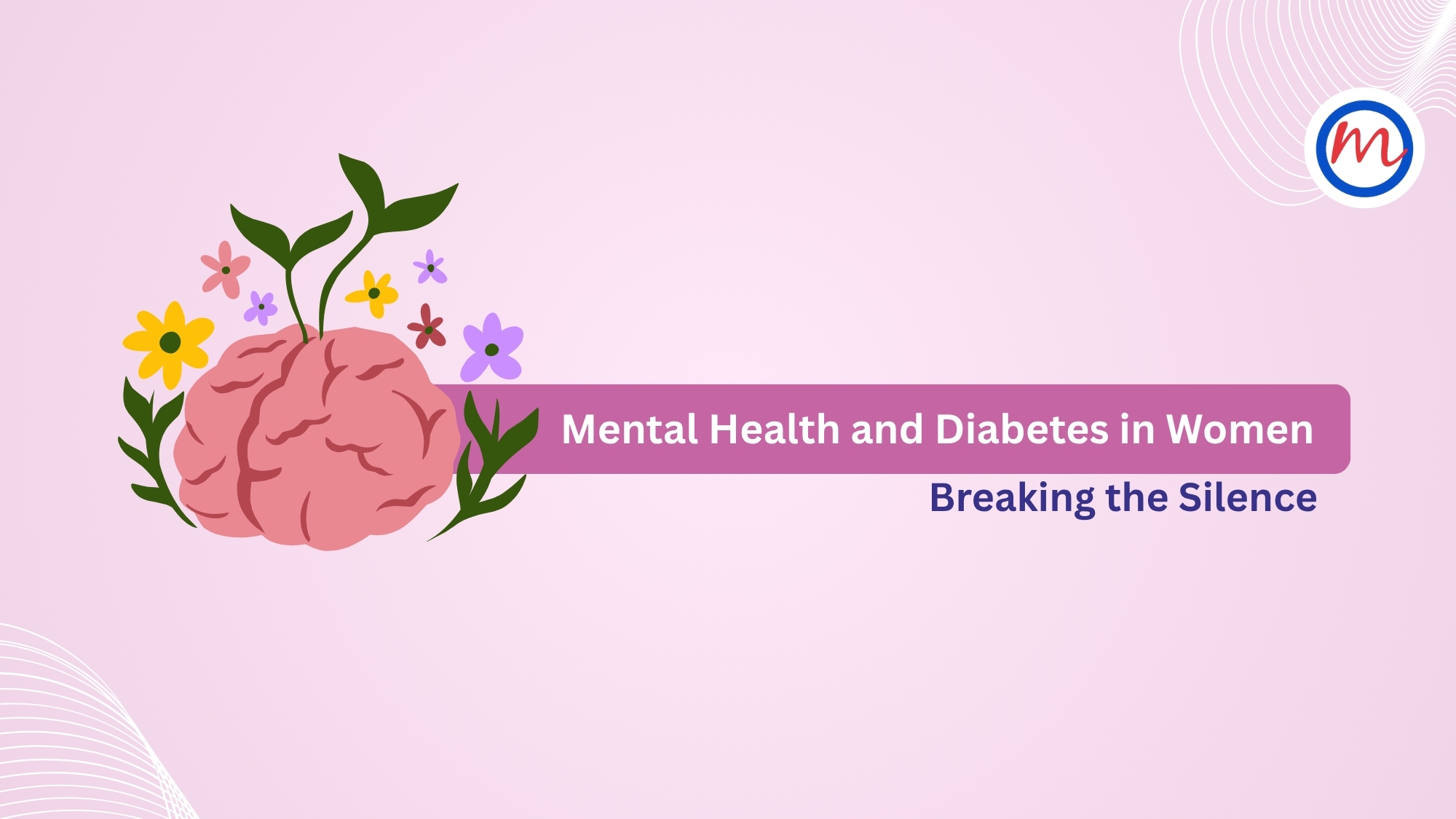Mental Health and Diabetes in Women: Breaking the Silence
Introduction
Living with diabetes is not just a physical challenge—it can take a toll on your emotional well-being, too. Women with diabetes are particularly vulnerable to mental health concerns like anxiety, depression and diabetes distress. Hormonal fluctuations, societal expectations and caregiving responsibilities often intensify this burden. This article explores the link between diabetes and mental health in women and provides strategies to build emotional resilience.
The Emotional Weight of Diabetes
Managing diabetes is a daily responsibility. Constant monitoring, food planning and health worries can feel overwhelming. For women, this burden is often magnified by added pressures—balancing work, family and self-care.
Common psychological effects in women with diabetes include:
- Anxiety: Worry about complications, future health or blood sugar lows
- Depression: Feelings of sadness, hopelessness or withdrawal
- Diabetes distress: Burnout or emotional exhaustion from ongoing diabetes management
Why Are Women More Affected?
- Hormonal Influences
Mood can fluctuate with the menstrual cycle, PCOS, pregnancy and menopause—each of which also affects blood sugar. - Social & Cultural Pressures
Women often prioritise others’ needs over their own, delaying care or neglecting their emotional well-being. - Higher Risk of Eating Disorders
Young women with diabetes are at greater risk of disordered eating, like insulin omission to control weight (“diabulimia”).
Signs of Anxiety and Depression in Women with Diabetes
- Loss of interest in daily activities
- Fatigue despite adequate rest
- Changes in sleep or appetite
- Difficulty concentrating or making decisions
- Irritability or unexplained sadness
- Withdrawing from family and friends
- Thoughts of self-harm or hopelessness
It’s important to remember: these are medical conditions, not personal weaknesses.
How Mental Health Affects Blood Sugar
- Stress hormones like cortisol can raise blood glucose
- Depression may reduce motivation to exercise, eat well or take medications
- Anxiety can lead to binge eating, insomnia or frequent blood sugar drops
It becomes a vicious cycle—poor mental health affects diabetes control, and poor diabetes control worsens mental health.
Coping Strategies for Women with Diabetes
- Talk About It
Don’t suffer in silence. Speak to a family member, friend, counsellor or your diabetologist. Seeking help is a sign of strength.
- Practice Mindfulness and Stress Relief
Simple techniques like deep breathing, meditation or yoga can calm the mind and improve glucose stability.
- Build a Support Network
Join diabetes support groups online or in person. Sharing stories and advice with others who understand can be therapeutic.
- Set Small, Achievable Goals
Overwhelmed by tasks? Break them down into manageable steps. Celebrate small wins—even checking your sugar today is progress.
- Exercise Regularly
Physical activity is proven to lift mood and lower blood sugar. Choose something enjoyable—dance, walk or play with your kids.
When to Seek Professional Help
If symptoms last more than two weeks or interfere with daily life, consult a mental health professional. You may benefit from:
- Counselling or cognitive behavioural therapy (CBT)
- Medication (antidepressants or anti-anxiety drugs) if advised
- Combined care from a psychologist and your diabetes team
If you are supporting a woman with diabetes, watch for changes in her mood or behaviour. Encourage her to talk, support her diabetes care without judgment, and help her prioritise self-care.
Conclusion
Mental health is just as important as blood sugar levels in diabetes care. For women living with diabetes, recognising emotional struggles and seeking help can transform health outcomes. Let’s break the silence, remove the stigma, and support each other toward a healthier mind and body.

Leave a Reply